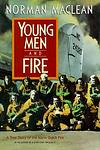The Greatest "American History, Life Sciences" Books of All Time
Click to learn how this list is calculated.
This list represents a comprehensive and trusted collection of the greatest books. Developed through a specialized algorithm, it brings together 300 'best of' book lists to form a definitive guide to the world's most acclaimed books. For those interested in how these books are chosen, additional details can be found on the rankings page.
Genres
The "American History" category encompasses a broad range of books that delve into the events, figures, and forces that have shaped the United States from its pre-colonial days to the present. This genre includes works on pivotal moments such as the American Revolution, Civil War, and civil rights movements, as well as studies of political, social, and cultural developments across various eras. It covers biographies of influential leaders, analyses of policy changes, and examinations of societal shifts. Whether providing comprehensive overviews or focusing on specific incidents or decades, books in the American History category aim to illuminate the complexities of the nation's past, offering readers insights into the events that have defined the American experience and the context for its ongoing evolution.
The "Life Sciences" category in books encompasses a broad range of disciplines that study living organisms and life processes. This includes fields such as biology, botany, zoology, microbiology, genetics, biochemistry, and ecology, among others. Books in this category may delve into the intricate mechanisms of the cell, the complex interactions within ecosystems, the genetic blueprints that dictate the traits of organisms, or the evolutionary processes that have shaped life on Earth. They can range from introductory texts for students to advanced research publications for specialists. The Life Sciences category is essential for anyone seeking to understand the natural world, from the molecular level to the biosphere, and it serves as a vital resource for students, researchers, and professionals in health, agriculture, conservation, and biotechnology.
Countries
Date Range
Reading Statistics
Click the button below to see how many of these books you've read!
Download
If you're interested in downloading this list as a CSV file for use in a spreadsheet application, you can easily do so by clicking the button below. Please note that to ensure a manageable file size and faster download, the CSV will include details for only the first 500 books.
Download-
1. The Immortal Life of Henrietta Lacks by Rebecca Skloot
The book tells the story of Henrietta Lacks, a poor African American tobacco farmer whose cells, taken without her knowledge in 1951, became one of the most important tools in medicine, vital for developing the polio vaccine, cloning, gene mapping, and more. Henrietta's cells have been bought and sold by the billions, yet she remains virtually unknown, and her family can't afford health insurance. The book explores the collision between ethics, race, and medicine; of scientific discovery and faith healing; and of a daughter consumed with questions about the mother she never knew.
-
2. The Mind of the South by W. J. Cash
"The Mind of the South" is a comprehensive exploration of the culture, socioeconomic conditions, and mindset of the American South. The author delves into the historical development of the South, analyzing the impact of slavery, the Civil War, and the subsequent reconstruction on the region's collective psyche. The book provides a critical examination of the South's perceived uniqueness, its racial dynamics, and the enduring influence of its past on contemporary Southern identity.
-
3. Young Men and Fire by Norman Maclean
The book tells the tragic story of 13 smokejumpers who lost their lives in the 1949 Mann Gulch fire in Montana. The author examines the circumstances leading up to the disaster, the fire's aftermath, and its lasting impact. The narrative combines elements of reportage, biography, and nature writing, and it serves as a meditation on writing, grief, and the human character.
-
4. Booker T. Washington: The Wizard of Tuskegee, 1901–1915 by Louis R. Harlan
This book delves into the life and influence of Booker T. Washington during his time as the head of Tuskegee Institute from 1901 to 1915. The narrative explores Washington's political and social strategies, as well as his controversial policies, as he navigated the complexities of post-Reconstruction America. It also examines his relationships with key figures of the era, his efforts to promote African American education and economic self-reliance, and his enduring legacy in the fight for civil rights.
Reading Statistics
Click the button below to see how many of these books you've read!
Download
If you're interested in downloading this list as a CSV file for use in a spreadsheet application, you can easily do so by clicking the button below. Please note that to ensure a manageable file size and faster download, the CSV will include details for only the first 500 books.
Download


